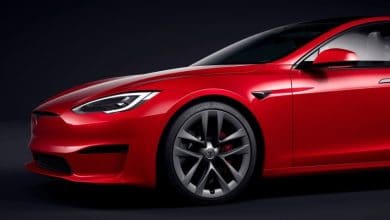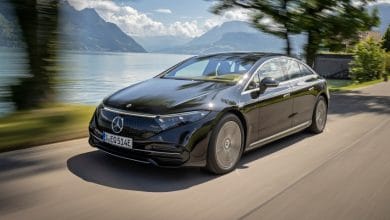Canada | Ford delays production of its electric vehicles by two years

(Detroit) Automaker Ford is delaying the start of electric vehicle production at its Oakville, Ontario plant by two years, which could affect thousands of jobs.
The American manufacturer had planned to launch production in the Canadian factory, which employs 2,700 people, in 2025, but it is pushing this date back to 2027.
Last year, Ford announced plans to spend $1.8 billion to transform its Oakville assembly plant into an electric vehicle manufacturing hub, including assembly of vehicles and battery packs.
Renovation work at the factory will begin as planned in the second quarter of this year, but the launch of the new three-row electric vehicles that will be produced at the factory will not take place until 2027.
According to the company, this delay will give the consumer market more time to develop and allow further development of electric vehicle battery technology.
Some employees will remain on site during the plant's transformation, but there will be layoffs, Ford spokesman Said Deep said Thursday.
He clarified that employees are entitled to income security benefits for a period that varies depending on their seniority.
The company added that it would work with Unifor, which represents 3,200 workers at the plant, to mitigate the impact of the delay on its workforce.
Unifor said it wants Ford to consider all possible options to mitigate the negative effects on workers of the “substantial delay” in starting EV production at the Oakville plant.
The union's national president, Lana Payne, said she was extremely disappointed by the decision. Mme Payne said in an interview that she understands the transition to electric vehicles isn't easy, “but none of that changes the reality that thousands of workers face today, which is great uncertainty.” and a delay of several years in the production of electric vehicles.”
Mme Payne added that the union is doing everything it can to “push the company to deliver on the promises made to our members and the commitments that have been made to have a robust vehicle manufacturing plant in Oakville that includes construction of electric vehicles.
Ford Chairman and CEO Jim Farley said the delay was a long-term decision.
“We appreciate our Canadian teammates and understand that this delay will have an impact on this excellent team,” said Mr. Farley, president and CEO of Ford, in a press release. We are fully committed to manufacturing in Canada and believe this decision will help us build a profitable and growing business over the long term. »
The Oakville site includes three body shops, a paint shop and an assembly shop.
Ford said planned changes at the site include a new battery factory where workers will assemble parts produced at Ford's U.S. factories into batteries that will then be installed in vehicles assembled at the site.
The company's spending plans were first announced in 2020 as part of union negotiations, with workers seeking long-term production commitments. The three Detroit automakers ultimately agreed to invest in Canadian operations under spending deals with the federal and Ontario governments.
The two governments agreed to provide 295 million each to guarantee Ford's investment.
Ford also revealed Thursday that construction of a new electric pickup truck at a much-hyped new factory in Tennessee will be delayed by a year, until 2026.
The decline comes as growth in U.S. electric vehicle sales slowed to 2.7% in the first quarter of the year, well below the 47% increase that helped reach record highs. record sales and a market share of 7.6% last year. Sales of new vehicles increased by almost 5% and the market share of electric vehicles fell to 7.1%.
Sales of hybrids, however, increased 45% from January to March, while plug-in hybrids, which can travel a short distance on their battery before a gasoline-electric system kicks in, grew 34%. , according to Motorintelligence.com.
Ford also said it “plans to offer” hybrid versions of all its gas-powered passenger vehicles by the end of the decade in North America.
Industry analysts say most early adopters of the technology and people looking to reduce emissions have already purchased electric vehicles. Automakers now need to convince skeptical buyers to go electric, but those customers fear limited range and a lack of charging stations.
Ford expects pre-tax losses at its electric vehicle unit to increase from US$4.7 billion last year to a range of US$5 billion to US$5.5 billion this year. On the other hand, it forecasts that commercial vehicles will achieve a turnover of 8 to 9 billion US dollars, compared to 7.2 billion US dollars last year. Gasoline vehicles and hybrids are expected to bring in between US$7 billion and US$7.5 billion, about the same as last year.












